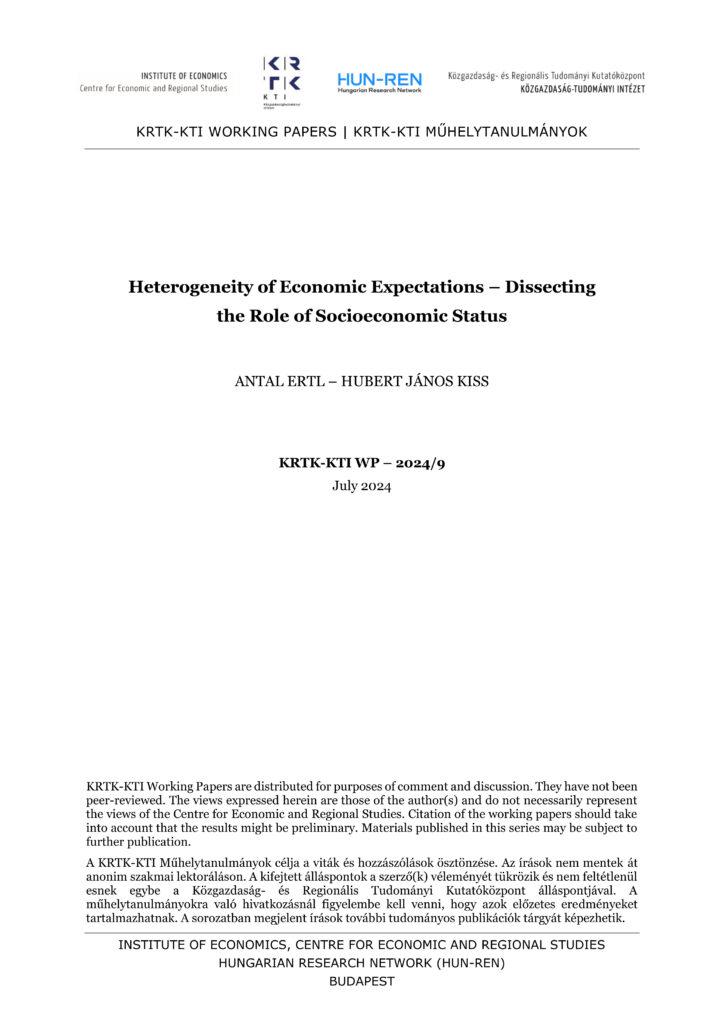Economic decisions depend on economic expectations. Using Hungarian monthly survey data between 2000 and 2009, we show that the relationship between expectations (both at the macroeconomic and household levels) and socioeconomic status (SES), as represented by income rank and education level, is non-linear. In many instances, there is no significant difference in expectations between the two lower quintiles. However, individuals in the upper (fourth and top) quintiles exhibit significantly more positive expectations than those in the lower quintiles. There is also a clear difference in expectations between the fourth and the top quintiles. In terms of education level, individuals with a high-school degree have significantly more positive expectations compared to their peers without one. Significant differences in economic expectations are also observed between high-school graduates and individuals with a university diploma, particularly regarding inflation, savings expectations, and the assessment of the household’s future financial situation. Disparities in household-level expectations based on SES are more pronounced than those in macroeconomic expectations. Past experiences and household-level optimism seem to be key factors influencing macroeconomic expectations. Furthermore, we document that both macroeconomic and household-level expectations predict the intention for significant expenditures, even after controlling for SES variables.
Publikációk / Heterogeneity of Economic Expectations – Dissecting the Role of Socioeconomic Status
Heterogeneity of Economic Expectations – Dissecting the Role of Socioeconomic Status
- 2024.07.05
- | 14:28

2025
Jun
30
M
T
W
T
F
S
S
26
27
28
29
30
31
1
2
3
4
5
6
7
8
9
10
11
12
13
14
15
16
17
18
19
20
21
22
23
24
25
26
27
28
29
30
1
2
3
4
5
6
Next month >
a
2025
Jun
30
M
T
W
T
F
S
S
26
27
28
29
30
31
1
2
3
4
5
6
7
8
9
10
11
12
13
14
15
16
17
18
19
20
21
22
23
24
25
26
27
28
29
30
1
2
3
4
5
6
Next month >

